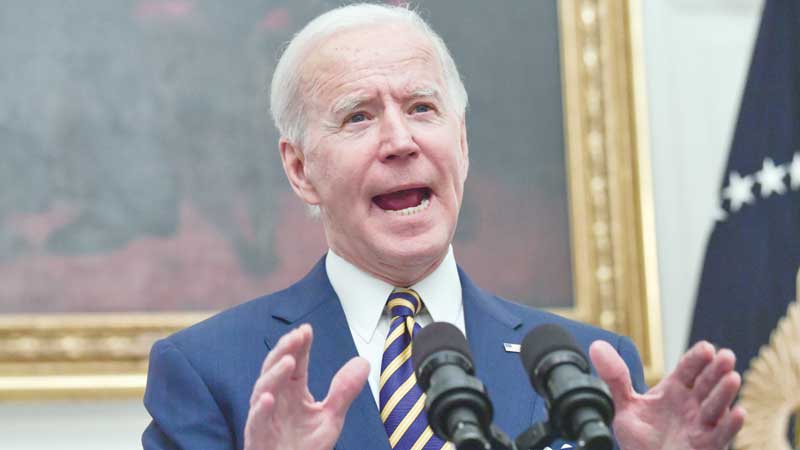

Jeff Gammage -
After Frans and his wife came to Philadelphia from Indonesia in the mid-2000s, they lived in fear that their young son would accidentally spill the family secret and get them all deported: They were in the United States illegally.
“We always told our son, no matter how close you are, you do not share anything,” said Frans, who is in his 50s and asked that his full name not be published. “You cannot open the door to whoever rings our bell or talk to any strangers.”
The couple abandoned an upscale life in their homeland to move into the shadows here, trading a big house and a thriving lending business for a rented home and low, off-the-books wages at a beauty supply shop. Their sole motivation was to propel their son towards a top education at a competitive American college.
A decade later he’s nearing graduation. And now a dream just as big could be possible, as President Joe Biden submits groundbreaking legislation that would offer Frans and 11 million other undocumented migrants in this country a path to US citizenship.
attacking immigrants
It’s a dramatic change of direction, opposite that set by former president Donald Trump, who based much of his presidency on attacking immigrants. It’s uncertain if Congress will approve Biden’s plan, despite slim Democratic majorities in both chambers. And the route to citizenship will not be easy or quick. Biden wants to first let people apply for temporary legal status. Five years later, they could get green cards, provided they pay their taxes and pass criminal- and national-security background checks. Then, after three more years and additional checks, those with green cards could apply to become citizens.
“It’s life-changing,” said Shoba Sivaprasad Wadhia, Director of the Center for Immigrants’ Rights Clinic at Pennsylvania State University, and not just for individuals but for the country. The DACA programme offers a small preview, she said.
Allowing those who were brought here as children to legally stay and work has fostered thousands of productive lives that benefit the nation — including as front-line doctors and nurses during the coronavirus pandemic.
The specific language in Biden’s bill will be crucial, Wadhia said, so that people feel comfortable revealing themselves to undergo background investigations. — dpa
People come to the United States without permission in different ways for different reasons, but jobs, better lives for their children, and safety from criminal gangs are drivers. Many make dangerous desert treks from Mexico, the nation that accounts for about half of all undocumented. Others fly into American airports holding legal visas, but stay after they’re supposed to go home.
That 11 million is down from a peak of 12.2 million in 2007, according to the Pew Research Center and others. One reason the total has remained relatively stable is because of stringent US policies - migrants can’t easily leave and return, so they stay. Another is that they live American lives.
People may think of undocumented migrants as separate from society, the “illegals” that the Trump administration routinely denounced, but their lives are intermingled with those of their neighbours.
About 1.6 million undocumented people are married to US citizens, and an additional 675,000 are wed to lawful permanent residents, according to the Migration Policy Institute in Washington. About 4.4 million US-citizen children have at least one undocumented parent.
More than a third of all undocumented speak only English or speak it very well. And, again defying stereotypes, many are well-educated. About 20 per cent have a four-year college degree, compared with one-third of the overall US population, MPI found. Sixty per cent have lived in the United States for at least a decade.
One commonality: To be undocumented is to live a life of risk and uncertainty, where any contact with officials - a simple police traffic stop - threatens discovery and deportation.
Undocumented migrants can’t legally work, except under certain programmes. That limits job prospects and opens them to abuse from employers. They can’t vote, can’t legally drive in most states. They’re ineligible for most government benefits, for health insurance, and, in most places, for a loan to go to college.
Yet many say their choice to come here was no choice at all: Stay in their homeland to watch their family suffer or be victimized, or take a chance on a better life. - dpa
Oman Observer is now on the WhatsApp channel. Click here



